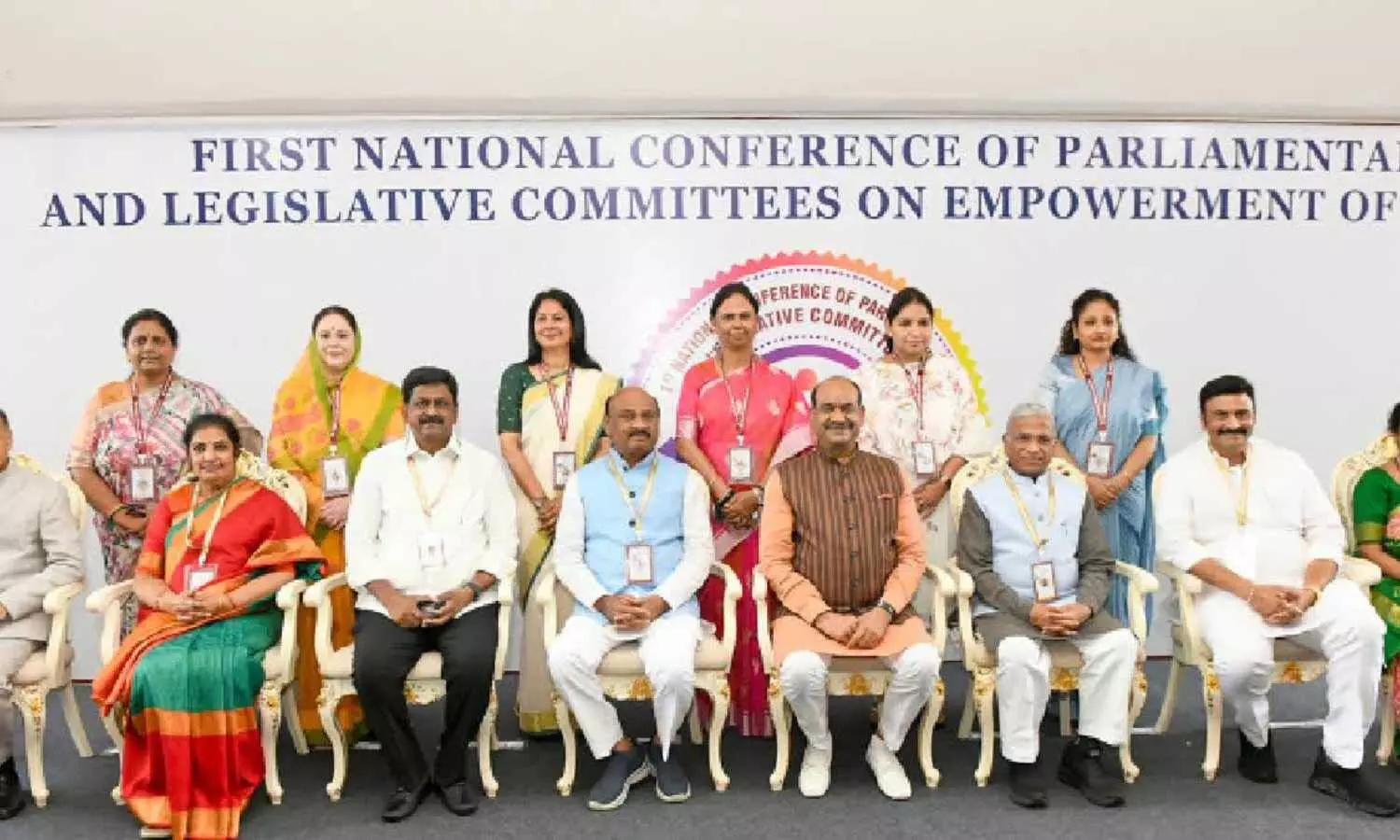First national conference of Parliamentary and legislative panels on women empowerment concludes with adoption of ‘Tirupati Resolution’
India’s first national conference of Parliamentary and legislative panels on women empowerment concludes with the adoption of the historic ‘Tirupati Resolution’.
First national conference of Parliamentary and legislative panels on women empowerment concludes with adoption of ‘Tirupati Resolution’

Lok Sabha Speaker Om Birla on Monday stressed that women’s empowerment is not only a social imperative but also an economic necessity.
He was speaking at the valedictory of first conference of Parliamentary and Legislative panels on women empowerment here.
The conference unanimously adopted the ‘Tirupati Resolution’, which laid down a clear roadmap for advancing women’s empowerment.
The resolution emphasised applying a gender lens across all ministries and departments, enhancing allocations for health, education, skills, and entrepreneurship, institutionalising gender responsive budgeting, and strengthening technical capacity at national and State levels.
It also committed to bridging the digital divide, promoting women’s participation in STEM fields, ensuring cyber safety, expanding digital literacy programmes, and making women active creators of technology.
Reaffirming the centrality of women-led development, the resolution pledged to advance women’s education, health, safety, dignity, and self-reliance as the cornerstone of national progress and the realisation of Viksit Bharat by 2047.
Governor of Andhra Pradesh S. Abdul Nazeer delivered the valedictory remarks.
In his address, Birla said by investing in women’s health, education, skills and entrepreneurship, India can unlock a vast reservoir of human capital and build a resilient socio-economic model of development.
The Speaker underlined that the leadership and contribution of women is pivotal to India’s journey towards Viksit Bharat by 2047. He said such conferences provide a platform where legislators through their experiences at the centre and states can meet and share their thoughts.
Birla emphasised that women’s empowerment must not be viewed only as a matter of welfare, but as the foundation of national development.
He recalled the pioneering role of reformers such as Savitribai Phule, who championed the cause of women’s emancipation through education, and cited the example of schools in Maharashtra which educated elderly women in villages in pursuit of 100 percent literacy. Such initiatives, he noted, remain a source of inspiration for contemporary policies.
Highlighting the achievements of women from rural and underprivileged backgrounds, the Speaker said that their excellence in education, entrepreneurship and community leadership shows that opportunities, when provided, yield transformational outcomes.
Birla called for a renewed effort to extend these opportunities to every segment of society, so that women can participate fully as equal stakeholders in India’s progress.
The Speaker highlighted how gender responsive budgeting is not merely a financial mechanism but a socio-economic model that integrates women’s needs into the national development agenda.
Applying a gender lens to resource allocation, he said, ensures that women’s concerns are not treated as peripheral but are integrated into mainstream planning.

